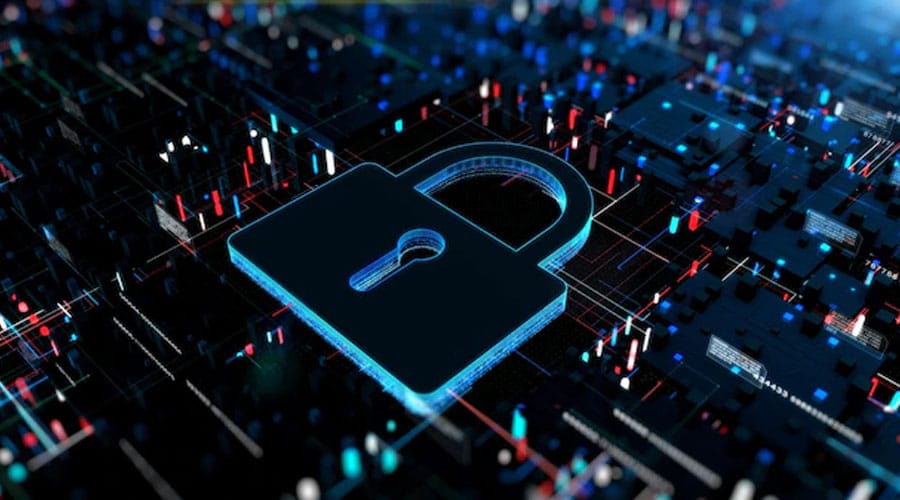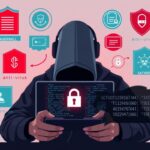Table of Contents
What is Cyber Security? It’s a holistic strategy that individuals and organizations implement to reduce the likelihood of encountering a digital assault. This strategy involves a diverse array of techniques, technologies, and protocols designed to safeguard our digital resources. At its core, it aims to protect the everyday devices we rely on—like smartphones, laptops, and tablets—as well as the services we utilize, both online and at work, from theft, damage, or unauthorized manipulation.
Beyond just hardware and software safeguards, this field also places a significant emphasis on the human element. It seeks to educate and train people to be alert to scams, malicious software, and other digital risks. Additionally, it is instrumental in preventing unauthorized entry to the large volumes of personal data we keep on these devices and various online services, such as cloud repositories and email systems.
Why It Matters
The significance of safeguarding our digital assets is amplified by the essential role that technology plays in our everyday activities. In our modern, interconnected society, living without smartphones, computers, and internet connectivity is almost unthinkable. These innovations have transformed the way we manage our finances online, shop, communicate through email, and engage on social platforms.
Yet, this digital revolution has also created new opportunities for online criminals to exploit weaknesses and gain unauthorized admittance to confidential information. Risks range from identity fraud to financial deception, and they are continuously changing. As a result, it’s increasingly vital to be proactive in securing our digital existence. This involves not only technological measures but also a heightened level of awareness and education to identify and thwart potential online risks.
Cyber Security for Individuals and Families
In an era where our lives are increasingly digitized, Cyber Security is no longer just an organizational concern but a personal one as well. Individuals and families are becoming more susceptible to a variety of cyber threats, from identity theft to online fraud.
The Personal Stakes of Cyber Security
While businesses have IT departments and resources to protect their assets, individuals and families often lack these specialized defenses. Yet, we store a wealth of sensitive information on our personal devices, from financial records to intimate communications. This makes Cyber Security a household necessity, not just an enterprise-level requirement.
The Rise of Home Networks
With the advent of smart homes, even our household appliances are connected to the internet. From smart refrigerators to home security systems, the need for robust Cyber Security measures at home has never been greater. A single vulnerability can put your entire home network at risk.
Online Behavior and Cyber Hygiene
Good Cyber Hygiene is akin to regular hygiene; it’s a series of practices we should engage in regularly. This includes updating passwords, being cautious with email attachments, and being skeptical of unsolicited communications. Teaching these habits to family members, especially children, is crucial for collective security.
Protecting the Vulnerable
Children and the elderly are often less aware of the risks associated with online behavior. Special attention should be given to educating these groups about the importance of Cyber Security and how to recognize potential threats like phishing scams or fraudulent websites.
When Things Go Wrong: Steps to Take
Despite best efforts, security breaches can happen. Knowing how to respond is vital. This involves contacting your bank if financial information is compromised, changing all passwords, and considering identity theft protection services.
Cyber Security for Self-Employed & Sole Traders
For self-employed individuals and sole traders, Cyber Security is not just a good practice; it’s a business imperative. Unlike larger organizations that have dedicated IT departments, self-employed individuals often have to be their own IT managers, making them particularly vulnerable to cyber threats.
The Business of Being Solo
When you’re a sole trader or self-employed, your business is often indistinguishable from you as an individual. This means that a cyber attack can have devastating effects, not just on your business operations but also on your personal life. Protecting your digital assets is as crucial as any other business operation.
Financial Transactions and Data Security
Self-employed individuals often manage multiple financial transactions online, from invoicing clients to making purchases. Ensuring the security of financial transactions and sensitive client data is paramount. Employing encryption methods and secure payment gateways can go a long way in enhancing security.
Client Trust and Reputation Management
For small businesses and freelancers, reputation is everything. A single data breach can severely damage your reputation and erode client trust. Implementing robust Cyber Security measures can not only protect you but also serve as a selling point to potential clients.
Remote Work and Cyber Security
Many self-employed individuals work remotely or from co-working spaces, connecting to various networks that may not be secure. Utilizing a Virtual Private Network (VPN) and ensuring your devices have the latest security updates can mitigate risks associated with remote work.
Regulatory Compliance
Depending on your industry, you may be subject to specific Cyber Security regulations. Failing to comply can result in hefty fines and legal complications. It’s essential to be aware of these regulations and implement necessary measures to ensure compliance.
Cyber Security for Small & Medium-Sized Organisations
While large corporations often make headlines for high-profile cyber attacks, small and medium-sized organisations are not immune. In fact, they are increasingly becoming targets for cyber criminals, primarily because they are perceived as having weaker Cyber Security defenses.
The Vulnerability of Being ‘Small’
Many small and medium-sized organisations operate under the misconception that their size makes them less attractive to cyber criminals. However, the opposite is often true. Smaller organisations usually have fewer Cyber Security measures in place, making them easier targets for attackers seeking to exploit vulnerabilities.
Data Protection and Customer Trust
For any organisation, data is one of the most valuable assets. This is especially true for smaller businesses that may collect customer information for personalized services. A data breach can not only result in financial loss but also severely damage customer trust and brand reputation.
Employee Training and Cyber Hygiene
One of the most overlooked aspects of Cyber Security in small and medium-sized organisations is employee training. Employees often serve as the first line of defense against cyber threats. Regular training sessions on recognizing phishing attempts, secure password practices, and other Cyber Hygiene essentials can significantly reduce the risk of a security breach.
Budgeting for Cyber Security
While budget constraints are a reality for many smaller organisations, skimping on Cyber Security can lead to much greater costs in the long run. It’s advisable to allocate resources for regular security audits, software updates, and emergency response plans.
Regulatory Compliance and Legal Obligations
Smaller organisations are still subject to data protection laws and may face severe penalties for non-compliance. Being aware of your legal obligations concerning data protection can save your organisation from costly legal battles and fines.
Cyber Security for Large Organisations
In the context of large organisations, Cyber Security takes on a level of complexity that goes beyond individual or smaller business concerns. With a larger attack surface due to multiple departments, employees, and often global operations, the stakes are significantly higher.
The Complexity of Scale
Large organisations often have complex IT infrastructures, involving multiple servers, databases, and cloud services. This complexity can be a double-edged sword; while it allows for robust Cyber Security measures, it also creates more potential points of failure or attack.
Data Governance and Risk Management
For large organisations, data governance is a critical aspect of Cyber Security. This involves classifying data, understanding where it is stored, and implementing policies to ensure its security. Risk management strategies, including regular audits and penetration testing, are essential for identifying vulnerabilities.
Employee Training and Insider Threats
With a large workforce, the human element becomes a significant Cyber Security risk. Comprehensive employee training programs are essential to mitigate this risk. Additionally, large organisations must also be vigilant about potential insider threats, which can be as damaging as external attacks.
Supply Chain and Third-Party Risks
Large organisations often work with a range of third-party vendors and suppliers. Each of these external entities can pose a Cyber Security risk if they do not adhere to stringent security protocols. Vendor risk management is, therefore, a crucial aspect of a large organisation’s Cyber Security strategy.
Incident Response and Crisis Management
Given the scale of operations, any Cyber Security incident can escalate into a crisis rapidly. Large organisations need to have a well-defined incident response plan and crisis management team to contain and manage any security breaches effectively.
Regulatory Compliance and Global Operations
Compliance with data protection regulations becomes more complex for organisations operating across multiple jurisdictions. Non-compliance can result in severe penalties and damage to reputation, making it imperative to stay updated on various regional and global data protection laws.
Cyber Security for the Public Sector
The public sector, comprising government agencies, educational institutions, and healthcare providers, faces unique Cyber Security challenges. Given the sensitive nature of the data they handle and the critical services they provide, the stakes are exceptionally high.
The Public Trust Factor
Public sector organizations are custodians of a vast amount of sensitive and personal data, from citizen records to confidential government information. A breach in Cyber Security can severely erode public trust and have far-reaching consequences on national security.
Infrastructure and National Security
Many public sector organizations are responsible for critical infrastructure, such as energy grids, water supply, and public transportation. Ensuring the Cyber Security of these infrastructures is not just an IT issue but a matter of national security.
Regulatory and Compliance Challenges
The public sector often has to adhere to a myriad of regulations and compliance standards, some of which may be specific to their area of operation. Failure to comply can result in not just financial penalties but also legal repercussions.
Budget Constraints and Resource Allocation
Unlike the private sector, public sector organizations often operate under tight budgets. Allocating sufficient resources to Cyber Security can be challenging but is essential given the critical nature of the services they provide.
Employee Training and Awareness
The human factor is often the weakest link in Cyber Security. Comprehensive training programs aimed at educating employees about the risks of phishing attacks, the importance of strong passwords, and data handling procedures can go a long way in bolstering security.
Cyber Security in E-Governance
As governments move towards digital platforms for governance, the need for robust Cyber Security measures becomes even more critical. From secure online transactions to protecting digital identities, the scope is vast and complex.
Digital Safety for Professionals
For experts in the field of digital safety, the environment is in a constant state of flux, teeming with ever-changing threats and novel challenges. These specialists often serve as the final barrier against online attacks, making their role indispensable in any organization, whether it’s a public institution or a private enterprise.
Adapting to Changing Threats
Professionals must remain ahead of the game as online threats are in a constant state of evolution. From ransomware to advanced persistent threats, staying updated on the latest forms of attacks and countermeasures is crucial.
Ongoing Skill Enhancement
The realm of digital protection is one that necessitates ongoing education. Skill sets must be frequently updated through certifications, workshops, or higher education to maintain effectiveness and relevance.
Ethical Obligations and Accountability
Given the confidential nature of the data they safeguard, these experts must adhere to the highest ethical norms. Any ethical missteps can result in severe consequences, affecting not just the individual but the organization they serve.
Essential Tools and Technologies
A variety of tools are employed in this field to monitor, detect, and neutralize threats. Knowledge of these tools, ranging from firewalls to intrusion detection systems, is vital for effective risk management.
The Importance of Teamwork
Collaboration is key in this domain; it’s not a task for a single individual. Effective communication and teamwork across various departments and even external organizations are essential for building a strong defense mechanism.
Crisis Response and Management
When an incident occurs, these professionals are often the first on the scene. Training in crisis management and incident response protocols is essential to contain and resolve issues effectively.
Frequently Asked Questions (FAQs)
1. What is Cyber Security?
Cyber Security is the practice of protecting digital assets, including devices like smartphones and computers, as well as online services, from theft, damage, or unauthorized access.
2. Why is Cyber Security important?
Cyber Security is crucial because our reliance on digital platforms for everything from banking to social media has made us vulnerable to cyber attacks. Effective Cyber Security measures can prevent cyber criminals from accessing our accounts, data, and devices.
3. How do Cyber Security professionals stay updated on threats?
Cyber Security professionals engage in continuous learning through certifications, workshops, and staying abreast of the latest types of cyber threats and countermeasures.
4. What are some common Cyber Security measures for small businesses?
Small businesses can benefit from regular security audits, employee training, and implementing firewalls and antivirus software to protect against cyber threats.
5. How does the public sector handle Cyber Security?
The public sector takes Cyber Security seriously due to the sensitive nature of the data they handle and the critical services they provide. Measures include stringent regulations, employee training, and specialized Cyber Security solutions.
6. What are some Cyber Security challenges for large organisations?
Large organisations face challenges such as managing a complex IT infrastructure, ensuring data governance, and staying compliant with various regional and global data protection laws.
7. How can individuals protect themselves online?
Individuals can enhance their online security by using strong, unique passwords, enabling two-factor authentication, and being cautious of phishing attempts.
8. What is the role of Cyber Security in e-governance?
As governments move towards digital platforms for governance, robust Cyber Security measures become critical for secure online transactions and protecting digital identities.
Conclusion: Safeguarding Our Digital Existence
In summary, the practice of defending our online assets and data is a complex and ever-evolving field that touches every aspect of modern life. From individual users and family units to sprawling corporations and government entities, the need for robust protective measures is universal.
Understanding the intricacies of this field is not just for experts but is a shared responsibility. The digital landscape is fraught with risks, but it also offers solutions. By staying informed and taking proactive steps, we can all contribute to a safer online environment.
For those interested in diving deeper into this subject, a wealth of resources and insights are available to help mitigate risks and enhance digital safety.
By embracing a culture of continuous learning and adaptation, we can better navigate the challenges of our interconnected world.
.












